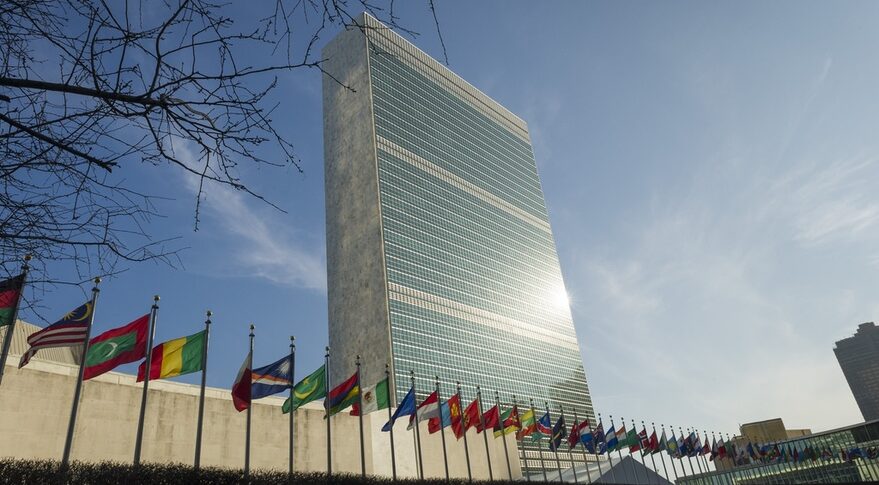
WASHINGTON — The United Nations General Assembly approved a resolution calling for a halt to one type of anti-satellite (ASAT) testing, a largely symbolic move intended to support broader space sustainability initiatives.
The resolution, introduced by the United States and several other nations, was approved by the U.N. General Assembly Dec. 7 among dozens of other resolutions on arms control and related topics with little discussion or debate. A total of 155 nations voted in favor of the resolution, with 9 voting against it and 9 others abstaining.
The resolution calls on countries to halt destructive testing of direct-ascent ASAT weapons, citing concern that such creates large amounts of debris that threaten the safety of other satellites. An example is the November 2021 ASAT test by Russia that destroyed the Cosmos 1408 satellite, creating nearly 1,800 tracked pieces of debris and likely many more objects too small to be tracked. About a third of the tracked debris from that test was still in orbit nearly a year later.
The resolution is non-binding in the sense that it does not require countries to halt such tests, instead calling upon states to refrain from conducting tests. It states that it considers such a commitment to refrain from tests “an urgent, initial measure aimed at preventing damage to the outer space environment, while also contributing to the development of further measures for the prevention of an arms race in outer space.” It also supports continued efforts to develop “further practical steps” to reduce risks in outer space.
The General Assembly vote was nearly identical to one by the U.N.’s First Committee, which deals with disarmament and international security topics. It voted 154-8 in favor of the resolution Nov. 1, with 10 countries abstaining.
The eight countries that voted against the resolution in the First Committee — Belarus, Bolivia, China, Cuba, Iran, Nicaragua, Russia and Syria — also voted against the resolution in the General Assembly. They were joined by the Central African Republic, which voted in favor of the resolution in the First Committee but against it in the General Assembly for unknown reasons. India was among the countries that abstained from the vote, both in the First Committee and at the General Assembly.
Vice President Kamala Harris, who announced in April that the United States would refrain from destructive direct-ascent ASAT tests and called on others to do the same, welcomed the U.N. vote. “Back in April, I announced the United States will not conduct destructive direct-ascent anti-satellite missile tests, and I called on other nations to join us. Today, 155 countries voted in favor of a UN resolution, helping establish this as an international norm for space,” she tweeted after the vote.
Since the announcement by Harris in April, nine other countries have announced their own pledges not to conduct such tests, most recently France on Nov. 29. None of the countries had active direct-ascent ASAT testing programs.
The resolution is one of several efforts to promote safe and sustainable space activities. A parallel effort, kicked off by another U.N. resolution a year ago, established an Open-Ended Working Group to discuss ways of reducing space threats. That working group has met twice, with two more meetings scheduled for 2023 before offering its conclusions for future actions.
A separate effort, the Artemis Accords, seeks to promote safe and sustainable activities in space exploration. While not dealing directly with issues like ASAT testing, the Accords call on countries to limit the generation of orbital debris, while calling on transparency in space activities and affirming the use of space for peaceful purposes.
“We and the other original signatories of the Artemis Accords came together to think about that next era of space exploration and make sure that it was being implemented in accordance with the fundamental principles of responsible behavior,” Pam Melroy, NASA deputy administrator, said in a talk Dec. 12 at a Secure World Foundation event about the Accords.
The United States and seven other nations were original signatories of the Artemis Accords in October 2020. Twenty-one nations have now signed the Accords, and Melroy said in her remarks she expected more nations to join in the near future.